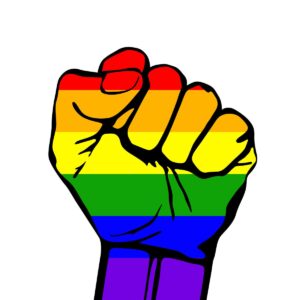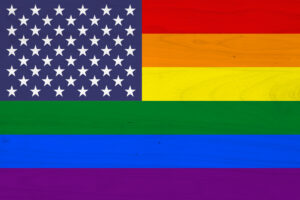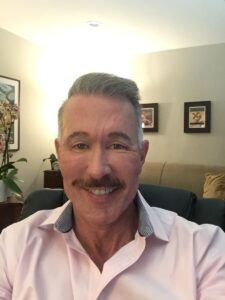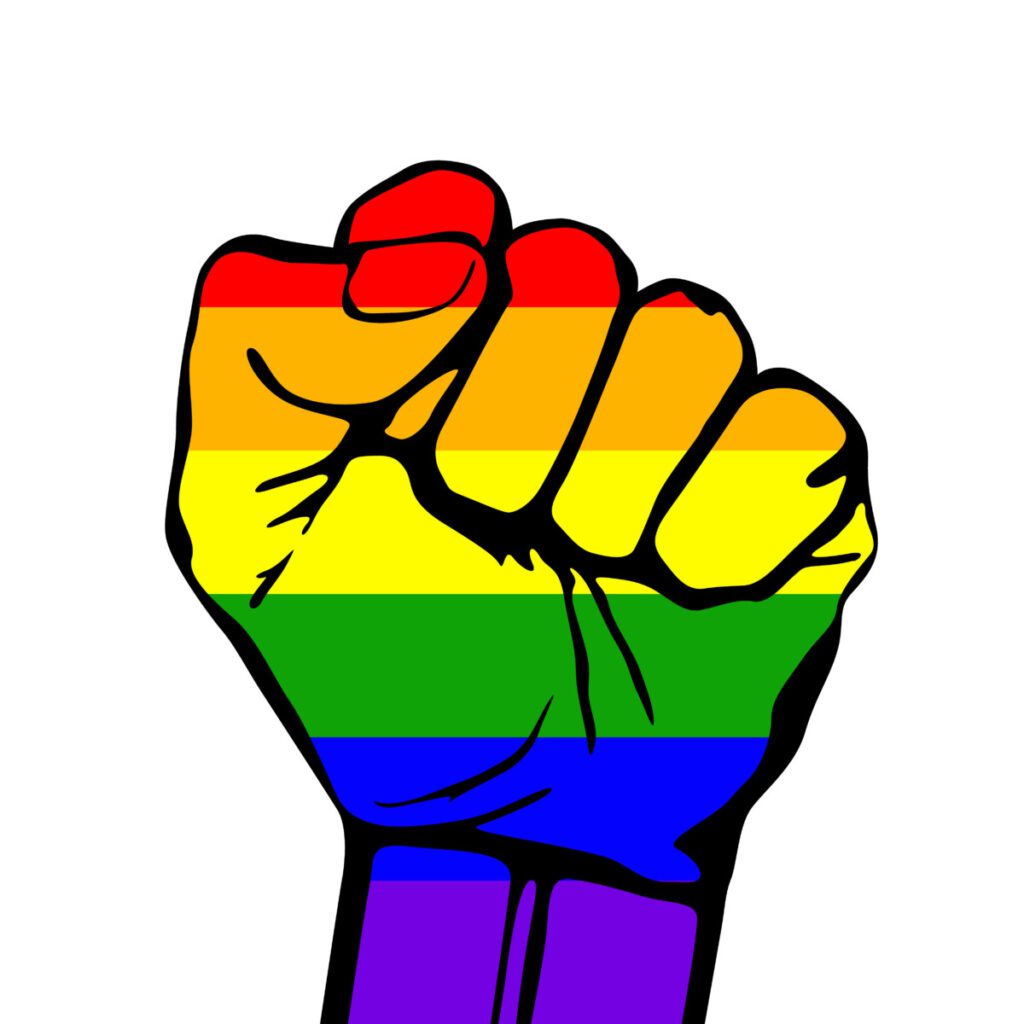 Gay Men, Activism, and Social Conscience
Gay Men, Activism, and Social Conscience
While being a gay men’s specialist psychotherapist, sex therapist, and life/career/executive coach for over 30 years in 2023, I’ve also strongly identified within my graduate training and licensure/professional discipline category of being a Licensed Clinical Social Worker (LCSW) in the state of California.
California has several licenses that allow the practice of various iterations of counseling, therapy, psychology, psychiatry, and clinical social work (LCSW, LMFT, LPCC, psychologist, MD psychiatrist, etc.). What makes clinical social workers different is an aspect of our graduate training that emphasizes not just “micro” practice (one-on-one with people), or mezzo practice (small groups or defined populations/systems), or macro practice (larger group/systems/society), but a context of social justice and socio-historical, cultural context. Concepts like minority stress, cultural competency and cultural context, historical cultural oppression, systemic bias, discrimination, prejudice, and all the “isms” (racism, sexism, heterosexism, ageism, ableism, anti-Semitism, xenophobia, etc.) are considerations as well.
Certainly, my long-term specialty in working with the LGBT community in general and gay men in particular involves this. In the history of my career, I began graduate training and my decision to devote my professional life to the dignity, worth, and quality of life of gay men during the height of the AIDS crisis by the late 1980s and early 1990s. I didn’t just “choose a profession,” I “identified a calling,” and have been giving it my best efforts ever since. Back then, I thought, OK, sure, the AIDS crisis can try to do its worst – but if I had anything to say about it, I was going to fight back, and help my gay male brethren fight back, too.
That combination of academic study, clinical practice skill cultivation, and later academic teaching always had a component of being a social justice activist. That can drive a person crazy sometimes, but it’s also rewarding to fight back against systemic injustices, and occasionally actually win.
The LGBT has had “wins.” We got marriage equality throughout the United States by order of the Supreme Court. We got employment protections nationwide, again by a Supreme Court ruling that expanded protections against gender discrimination, at least in the binary sense. We’ve had state and local victories, and some international ones, against the awful and traumatic practice of “conversion therapy” (trying to convert gay people into straight people), or “reparative therapy” (trying to “repair” gay people from being “broken” by their sexual orientation). We can be grateful that activism, education, and public pressure has supported these and similar movements.
But here today, in 2023, we are seeing some LGBT rights backsliding. Who can say why; perhaps it’s the puzzling extreme popularity of Donald Trump and the new Neo-Fascism that has taken over the Republican Party in the United States, and his popularizing vocal, aggressive, visible bigotry in many forms. Maybe it’s the increasing awareness and acceptance/integration of “out” transgender or nonbinary people in American society that has the “conservative” bigots having a crisis about accepting social change that ignites a murderous rage to strip transgender people of their legal rights to participate in sports, use public facilities, have access to gender-affirming care, have the right to be treated with the respect of being called their chosen name in schools or the workplace. Whatever the reasons, state legislatures in countless “red” states in the United States (often former slave states, historically, and those with a history of resisting the progress of civil rights in so many ways) have proposed and passed many new state laws that actively oppress trans and nonbinary people in ways that benefit no one except the bigots’ sadistic rage when they don’t want trans people to exist or have civil rights.
These laws have passed in 2023 quick on the heels of the Supreme Court overturning the landmark Roe v. Wade case that legalized abortion in all 50 states in 1973, now leaving it up to states to decide abortion’s legality, whether in a medical facility or through a medication, often obtained online. The overturning of Roe without really all that much protest from women and their allies for reproductive freedom emboldened state legislatures to further their agenda for a conservative “Christian” theocracy state in what was formerly the United States, eerily close to the premise of Margaret Atwood’s dystopian novel, “The Handmaid’s Tale.’
Historically, oppression of the LGBT community has prompted renewed activism in response. When the House Un-American Activities Committee attacked American citizens from all walks of life for being (or suspected of being) members of the American Communist Party (true or not), Senator Joe McCarthy spearheaded a remarkly powerful campaign to have those people silenced, especially Hollywood writers, actors, directors, and other creative professionals such that they were not “hireable” from an industry “blacklist.” This, and some other cultural dynamics in the post World War II economy, led to the first gay rights groups, led by either groups of gay men or lesbian women. The increasing oppression, especially from police raids and Mafia dominance, against bars and other gay spaces during the 1960s of course led to the boiling point that was the Stonewall Inn riots in June, 1969, and the removal of homosexuality from the “bible” of clinical psychiatric disorders, the Diagnostic and Statistical Manual of Mental Disorders [DSM] in 1973, after various academic and clinical debate and lobbying of the American Psychiatric Association.
The famous campaign, “Save Our Children” https://en.wikipedia.org/wiki/Save_Our_Children in Florida by has-been mediocre evangelical singer, Anita Bryant, to repeal a gay rights ordinance in Dade County, was successful, but motivated many counter-measures for local gay rights ordinances, and Bryant was effectively disavowed by many, including her fellow Christians.
The Briggs Initiative in California just after would have systematically fired every LGBT teacher in California, but after it was proposed, it motivated a major grass roots effort to defeat it, and it was defeated. Another initiative to quarantine every person living with AIDS in California by the same extremist, Lyndon LaRouche, also failed due to skillful mobilization against it. The passing of Proposition 8 to ban same-sex marriage in California in 2008 was successful, but also mobilized counter-measures with organizations such as Equality California (its passage, in part, was blamed on confusing wording on the ballot itself, with many voters casting a “yes” vote thinking that it was a “yes” to allow same-sex marriage, not ban it). By that time (November 6, 2008), over 18,000 gay and lesbian couples (including my husband and me) were already married, and those marriages were allowed to stay, in part fearing an extremely volatile uprising had the government tried to forcibly and retroactively “divorce” those couples, which was suspected might lead to endless legal complications and probably bloodshed.
If we look at international examples, similar dynamics of oppression leading to a mobilization of LGBT rights efforts have occurred, but LGBT rights in most Arab or Muslim-headed governments don’t exist at all, and capital punishment for LGBT people is not uncommon, in one of the most barbaric practices in the world since the European Holocaust.
How Do We Access Our Inner Activist?
Activism for LGBT people in general, and gay men in particular, is a complex thing. In recent social history, there has been increasing recognition that Gay White Men do have some privilege, such as male privilege and White privilege; they can also sometimes “pass” as straight if they exert burdensome efforts to do so, to avoid discrimination, whereas women and people of color cannot. However, homophobia within communities of color, and racism in the LGBT community, are really just successful strategies by the Tyranny of the Majority to limit the civil rights of all minorities by fostering fractionalism; “divide and conquer.” Historically, civil rights for many oppressed communities have been fostered by the support of fair-minded allies, in all kinds of combinations of social groups. For gay men, for example, the support of lesbians during the height of AIDS crisis in the person of lesbian nurses (a female-dominated profession) and women doctors (themselves very often the victims of oppression in a male-dominated profession) is just one example of a group that gay men owe a debt of gratitude to.
For gay men, “Activating Our Inner Activist,” shall we say, is a complex social, psychological, spiritual, philosophical, economical, developmental, and existential task. We might be influenced to become involved in local efforts regarding letter-writing or emailing campaigns to public officials, street protests, commercial economic boycotts, civil disobedience such as marches, sit-ins, or disturbances, or even just wearing protest slogan t-shirts or affixing slogan bumper stickers to our cars. We might be influenced by our local friends to do this, reacting to someone in our peer group who is already involved (organizations like ACT UP (AIDS Coalition to Unleash Power) in the 80s and 90s, or AIDS Project Los Angeles, or the (at the time) Los Angeles Gay Community Center are examples of these).
I remember being in my early thirties in the 1990s and at one point joining a huge group of hundreds of gay men (mostly) to appear on the campus of the University of California, Los Angeles (UCLA, my undergraduate alma mater) when Governor Pete Wilson was appearing to make a speech, just after he vetoed state measure AB-101, a gay rights ordinance, in loyalty to this anti-gay fellow Republican base. We surrounded the area, and used bells, noisemakers, whistles, buzzers, megaphones, or even just our voices (until we were hoarse!) making jeers and nonsense noises to literally drown out his speech (which wasn’t hard with his high-pitched, namby-pampy, whiny, dismissive tone of voice) so much that the event as spontaneously canceled and he was led away by his security detail as the noise grew louder.
Another major street protest against the AB-101 veto marched down Santa Monica Boulevard and marched through the popular outdoor Century City Shopping Center, followed by a large group of Los Angeles Police Department officers (who kept an admittedly polite distance), as shop keepers closed and locked their big glass doors, fearing looting, which didn’t happened (the police knew that West Los Angeles and West Hollywood gay men were not really the rioting kind, despite noisy protest). Eventually, of course, California passed progressive LGBT rights bills statewide, with ample LGBT representation in almost-completely Democratic state legislatures.
I’ve also been involved in marches and protests with California Abortion Rights Action League and the National Abortion Rights Action League, the National Organization for Women, and those in support of Chinese activists in the uprising at Tianamen Square, as well as protests during my UCLA days against South African apartheid (including forcing the Regents of the University of California to divest financial holdings in South Africa before the return of Nelson Mandela and the end of apartheid. I remember the chant, “UC Regents! You can’t hide! You invest in genocide!” (I always a fan of rhymed couplets as a lyricist, such as my songs in my original gay-themed musical, “On the Boulevard,” now available on Spotify, Amazon Music, YouTube, and all streaming services).
These experiences were not only socially rewarding, but also were a chance to meet new friends and share common values.
 Reasons We Become Involved in Activism
Reasons We Become Involved in Activism
For you, the reasons to become involved in various forms of activism and social justice advocacy can be social, but they have a psychological benefit as well, helping us a gay men (often with a history of suffering some kind of oppression for being gay, from bullying, to discrimination, to violent hate crimes, to legal/civil challenges) to fight back against negative feelings of helplessness, hopelessness, disempowerment, invalidation, or humiliation, and replacing them with a sense of robust self-esteem, personal and community pride, self-agency, self-efficacy, and a sense of the ability to command our own lives.
The spiritual aspect might involve a spiritual tradition we are a part of, about how our world should be, with compassion, equality, and justice, that has ties to more positive aspects of Christianity, Judaism, Buddhism, Wicca, Islam, and others.
The philosophical might be our commitment to certain ideals, such as the American historical idea that “all men are created equal,” which is problematic in the use of the word “men,” as well as, at the time, the obnoxious presumption that “equality” applied only to rich, White, straight, cisgender, able-bodied, educated, landowners, and not to women, people of color, or indigenous peoples for centuries to come. But a more generous, idealized version of this might be a philosophy that all are equal, with rights to “life, liberty, and the pursuit of happiness”, such as the happiness a trans woman or young girl might seek in being able to play competitively in group sports by gender group.
The economical is another consideration. Many people don’t realize that the Supreme Court case that ultimately gave us marriage equality rights in all 50 states was basically about a privileged widowed lesbian who didn’t want to be saddled with a lot inheritance taxes that opposite-sex couples had been able to avoid (hey, whatever works).
Sometimes, the economic aspects of activism are in the form of supporting the professional non-profit organizations who hire people to do the very skilled activism work for us. Lawyers, social workers, politicians, advocates, community organizers, writers, fundraisers, consultants, lobbyists, researchers, and others might be employed by these organizations to know how to strategically influence public policy and how legislation that becomes the Law of the Land is developed. If we are introverted or shy, a public role might not be right for us, but we can still support others, especially financially, which is a stark reality of advocacy movements.
Activism can be developmental as our perspectives and values change throughout the lifespan, such as the fiery young man out to make his mark on the world representing the new generation (I certainly had that spark), or it could be something an older might do to contribute to the well-being of the world before it becomes time for him to leave it (philanthropy can be this way; people who are privileged with wealth might name a scholarship at a university, or name a building on a college campus, or name a performing arts center or charitable foundation that gives grants in perpetuity, long after that person has passed away.)
For others, it’s an existential perspective; that we are here to earn our place of being on this Earth by contributing to its short-term, long-term, or even permanent (as much as things ever are) change for the better by being a part of an historical time and place (I have written on this idea before, about understanding our lives a in certain historic/cultural context).
For others, it’s altruism; it’s taking actions to “give back” to a world that has given them so much, such as a stable life, family, relationships, Family of Choice, livelihood, recreation, and a generally good time of it during our brief “hour on the stage” of life, as Shakespeare said.
For many of us, it’s a recognition that our world is very wonderful, but also a very flawed place, that needs our intervention when things go off the rails through some kind of social and political evolution.
When the threat of dissolution of the United States with cessation of certain states majority influenced by bigots who wanted to preserve the institution of slavery forever, the United States Union Army vanquished their movement. When Fascism, again rife with an historically unprecedented sadistic cruelty, threatened to vanquish Europe (and indeed, the world) by the astonishing political power of one man who recruited a massive sadistic movement (Adolf Hitler), fair-minded forces of the Allied Powers fought for years with blood, sweat, tears, and their lives to vanquish that. When vicious empirical forces of an Asian colonialism threatened to enslave the East, those same Allied vanquished that front as well. When California teachers faced systematic firing just for being gay or lesbian, ordinary people from all over the state (and some interstate allies) mobilized to defeat yet another powerful political bigot and his vicious legislation.
And, certainly, on a hot June night in a humid and crowded city, drag queens, trans people, gay men, bisexuals, lesbians, and their friends finally caught the inspiration to fight back against the sadistic, violent, criminal city police officers who had oppressed them for decades, in a multi-night melee that forced the world to never take LGBT passivity for granted ever again. Ever again. That is important to remember now, as LGBT rights are experiencing a Bigot Spring of renewed power of oppression that is not just an “opinion”, but is black-letter law statute that is enforceable by the police and the courts, against things we took for granted just one year ago like drag performances or trans students playing sports on the teams of their identified, true gender.
Never forgetting the importance of activism, individually, for all of us, and collectively, is the Spirit of Stonewall that we celebrate worldwide every year, so that we remember what it was like, historically and presently, to be oppressed. Stonewall was not merely an event, but a process of asserting, preserving, protecting, and celebrating the life, well-being, dignity, and safety of LGBT people everywhere, always, against those who, perpetually, in every generation and in every locality, are somehow overcome with the seductive power of bigotry and sadism that inspires their actions to destroy us anew in every successive generation. Many of the people passing anti-LGBT legislation in state assemblies and in Congress were barely even born by 1969 and Stonewall. And yet the Narcissistic, exhilarating, sadistic joy of hating and oppressing others in social and political violence, and delighting in watching them suffer for who they are, is strong within them, supported by tens of millions of their countrymen.
We have a big job to do. Our advocacy, our activism, is not over. As an older person now, I’ve come to believe it never will be. The battle between good and evil is timeless, and perpetual. Sadly, I think it’s the nature of Man. The only we can do is work to have the pendulum swing in our favor as much of the time, and in as many of the spaces, as we possibly can.
When the going gets tough, the tough get going. RISE UP! You got this. We got this. What you do, matters. No one is alone.
********
 If you would like support for making your life have the function, quality of life, and meaning that is important to you in your own value system, consider psychotherapy services or sex therapy services in California with me, where I am licensed, or the life/career/relationship coaching services I provide worldwide; I can explain the difference between those different professional services I offer when we talk. All services are confidential via telehealth platform. Call or text 310-339-5778, or email me at Ken@GayTherapyLA.com. Visit GayTherapyLA.com/blog for hundreds of blog articles on many topics of interest to the mental health and well-being of gay male individuals, couples, and polycules. If you enjoy this podcast, please review it and share it with others whom you think might like it or benefit from it as well.
If you would like support for making your life have the function, quality of life, and meaning that is important to you in your own value system, consider psychotherapy services or sex therapy services in California with me, where I am licensed, or the life/career/relationship coaching services I provide worldwide; I can explain the difference between those different professional services I offer when we talk. All services are confidential via telehealth platform. Call or text 310-339-5778, or email me at Ken@GayTherapyLA.com. Visit GayTherapyLA.com/blog for hundreds of blog articles on many topics of interest to the mental health and well-being of gay male individuals, couples, and polycules. If you enjoy this podcast, please review it and share it with others whom you think might like it or benefit from it as well.
Ken Howard, LCSW, CST is an AASECT Certified Sex Therapist, Licensed Clinical Social Worker in California, Certified Psychiatric Social Worker, retired Adjunct Associate Professor from the University of Southern California, and long-term gay men’s specialist psychotherapist and life/career/executive/relationship coach, worldwide. He is in full-time private practice from his home office in West Hollywood, California, and lives with his husband of over 20 years. In his spare time, he has written “On the Boulevard,” an original LGBT-themed musical, and its original cast concept album, available on music streaming services worldwide.



One response to “Gay Men, Activism, and Social Conscience”
To remain silent on any issue involving the LGBTQ+ Community or any community for that matter is abhorrent. We all must do whatever it takes to make our voices heard, regardless of what the issue is. At 72 I still voice my thoughts, and yell out against the wrongs, no matter what it is.